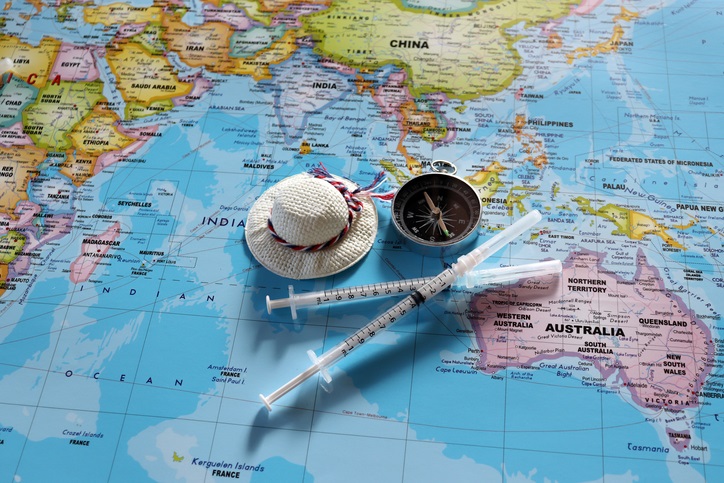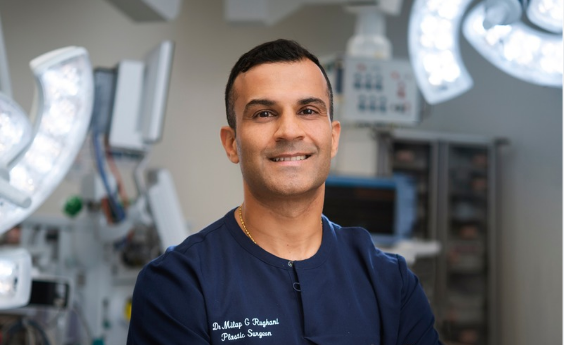Protecting Patient Safety
Cosmetic Tourism
Cosmetic Tourism
What is cosmetic tourism?
Cosmetic tourism is a price-driven practice where patients travel overseas to undergo cosmetic surgery procedures; it has experienced a rapid surge in growth in recent years. ASPS has safety-based concerns about cosmetic tourism and the risks associated with the practice, and cautions Australians against considering surgery overseas.
Companies tend to advertise on the internet offering all-inclusive ‘holiday ‘packages that include cosmetic surgery procedures. These range from dental implants to more serious invasive procedures such as butt lifts, breast augmentation, liposuction, facelift, tummy tucks, eyelid surgery, and nose reshaping. Unlike all Australian Specialist Plastic Surgeons, (who are subject to AHPRA advertising guidelines), surgeons based overseas have no restriction on the way that they advertise. This means that their adverts may look more glamorous or illustrate good results, but may be less realistic.
The lure of overseas treatment is often based on price. However, medical tourism raises some safety and financial concerns for Australian patients.

Cosmetic surgery is real surgery and it carries risk
Cosmetic surgery is real surgery and like all forms of surgery carries inherent risks. When choosing a surgeon there are many factors to consider which will help ensure the best results and limit risks and complications. While there are many highly qualified and educated surgeons practicing around the globe, Australians who travel overseas for cosmetic surgery are often travelling into the unknown and will be in the care of a health system that is foreign and may not be easy to navigate, particularly if something goes wrong.
Australia holds very high medical standards which are often not met in other countries
At a base level, surgery overseas can appear to be more cost-effective than having the procedure performed in Australia. Cosmetic surgery offers on the internet, to destinations such as Turkey, Thailand and Brazil, often include five-star accommodation, private hospital ‘services’, ‘highly qualified’ surgeons and heavily ‘credentialed’ medical staff.
The public should be aware that surgical qualifications, accreditation of medical facilities and standards of devices and products used in cosmetic surgeries overseas may not consistently meet the high standards required in Australia.
The importance of access to pre operative consultation
A key factor is the preoperative consultation with your surgeon. This is vital because it covers goals and expectations. Together with the surgeon you explore your surgical options together, as well as the risks involved. This should be done well ahead of the procedure so an informed decision about whether to proceed can be made. Patients who have had surgery overseas often report only meeting their surgeon on the day of their operation. They also note most of the preoperative discussion is done through third parties, who may or may not be medically trained.
The importance of access to post operative care
ASPS strongly recommends patients take into consideration the risk of potential complications, unsatisfactory results, and risks to general health that may occur if they travel overseas for cosmetic surgery. ASk the following questions. What would you do if you developed an infection and had to stay in the facility for a longer period? What would happen if you started bleeding after surgery and had to stay longer at the facility? If you became very unwell, you may require transfer to another hospital in that country at your own cost. How would you manage that scenario? How would you travel home under these circumstances? Would you have someone you trust to support you? Do you have a readily available financial buffer if you need to stay longer? Would you feel safe?
All surgical procedures carry a degree of risk. It is imperative that after any form of surgery a post-operative plan is in place, including appropriate ongoing follow-up. In the event of post-operative complications, follow-up care is essential. Patients should have easy access to the surgeon performing the procedure in the accredited facility where the procedure was performed. This is usually impossible once a patient has returned to Australia. Ongoing care would then need to be with a new surgical team, and at additional cost.
ASPS does not recommend combining surgery with having a holiday
Remember, cosmetic tourism is a price-driven practice. Immediate post-surgery care often includes rest and access to medical assistance, and international plane travel and residing in resort-style accommodation does not provide this.
Further resources on this topic include a podcast episode on The Plastic Surgeon & I, listen here.
To help ensure patient safety and to limit risks and complications, ASPS strongly advises against overseas cosmetic surgery tourism.
Reporting complications arising from surgery outside Australia
ASPS have set up a reporting system to capture patient complications experienced by Australians, following reconstructive or cosmetic surgery performed outside Australia, more information here.
Safety and Quality Issues in Cosmetic Surgery
Read the 2024 Australian report on the Safety and Quality Issues in Cosmetic Surgery. This is based on reviews of available medical literature and clinical guidelines. Specifically, the report identified cosmetic tourism as a growing industry with adverse consequences, likely to be managed in Australia by Australian Plastic Surgeons. Read report summary here.
Featured Stories

ASPS welcomes new Ahpra guidelines for Non-Surgical Cosmetic Practitioners
Sydney. June 3, 2025: The Australian Society of Plastic Surgeons…
Continue reading
